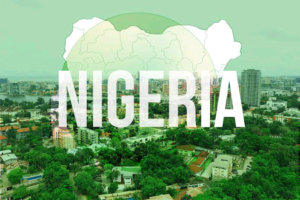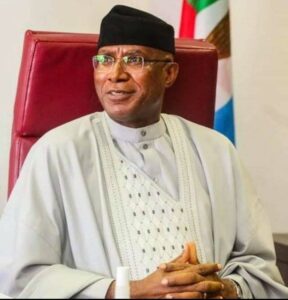IS NIGERIA REALLY QUALIFIED TO CELEBRATE CHILDREN’S DAY?
By Zik Gbemre
The subject question comes to mind when we consider the fact that the typical Nigerian Child is one who has been treated unfairly, unjustly and abused from all angles by the same society that is supposed to protect and nurture his/her growth in the first place. This makes us to wonder if Nigerians really have the moral right to celebrate Children’s Day when many Nigerian children were seen hawking on the streets (with dangers of being knocked down by vehicles or abused by adults), just to cater for their siblings and even parents, while the children of the well-to-do and rich in the society were seen picnicking, partying and socializing with their parents on the same May 27, 2018, which was marked as Children’s Day recently?
When Nigerian politicians, obviously do not have any regard for the majority of Nigerian children, as they loot the collective public wealth meant for all with reckless abandon and impunity, while they send their own children to good schools in the UK and US with the same public wealth; can we say we have the right to mark the said Children’s Day with their usual funfairs? Yes, there is absolutely nothing wrong if you can afford to care for your children with honest income to celebrate the said Children’s Day. But it is cruel and wicked to use stolen public wealth meant for improving the lives of these Nigerian Children, for one’s private use and deliberately deny the rest of the masses what they are entitled for. A common British needs not to be connected to the Buckingham Palace, the royal home of Queen Elizabeth II of England, or have links to No.10 Downing Street, which is the Official Residence and Office of the British Prime Minister; before one can get access to basic public utilities like we see happen in Nigeria.
When the majority of Nigerian Children who are future leaders of tomorrow, are deprived of their rights and access to good education, health care and good standard of living, we seriously do not have the moral right to celebrate the said Children’s Day. Perhaps, it is countries like Nigeria that necessitated the 1954 recommendation by the United Nations (UN) General Assembly, which constituted that all countries should institute a Universal Children’s Day to be observed. The said day should be one to celebrate children and draw attention to their problems.
However, when our children are out of school (or do not have access to basic education) and they pose a lot of problems to themselves and the society at large; when Nigeria is still one of the countries in Sub-Saharan Africa currently ranked worst in the world for child mortality; when poverty, hardship and hunger have driven most parents/guardians/adults to use (their) children for begging alms on the streets of cities across the country; when our girl-children have become targets of rape, molestation, incest, kidnap, ritual and all kinds of abuses in the hands of trusted adults, etc. – what moral right and moral consciousness do we have as a nation, and as a people to bring out drums and trumpets to celebrate Children’s Day?
Nigeria, having adopted May 27 of every year as its Children’s Day, and has been steady to the observance of the day, is guilty in every sense of the word, as to have not been able to address the hardship being faced by the Nigerian child. The UN General Assembly, having realized that all is not well with the World’s Children and recognizing that children do have ‘rights’ that must be documented, promoted, enforced and adopted in 1959, the Declaration of the Rights of the Child, which addresses the rights of children and Youth under 18 years. Also, in 1989, it adopted the convention on the Rights of the child, which covers in its 54 articles all the rights of the children. This has to do with health care, education, Freedom from exploitation and the right to hold opinion. Though, Nigeria is a signatory to all these conventions, most of these lofty goals, if not all, are more often breached than observed.
Another May 27, as Children’s Day in Nigeria, has come and gone with its usual pomp and ceremony, often with “less thought” on those things that would enhance the promotion of Children’s rights and well-being. At best, the event has been reduced to a mere ritual of ceremonies where government officials mouth slogans, speeches and intentions that are never fulfilled, including the Presidency. But in all, we need to ask: Is Nigeria really qualified to celebrate a commitment to the development of the Nigerian child? What hope/future does the country have for these children as future leaders? Are we celebrating mediocrity or the successes of rich Parents/Guardians? Does the robust looking children we see on Television during the May 27 celebration and other festivities, reflect the true position of majority of the Nigerian Children? These are posers every one of us, especially those at the corridors of power, should reflect upon and find answers to.
Zik Gbemre, JP.
National Coordinator
Niger Delta Peace Coalition (NDPC)




